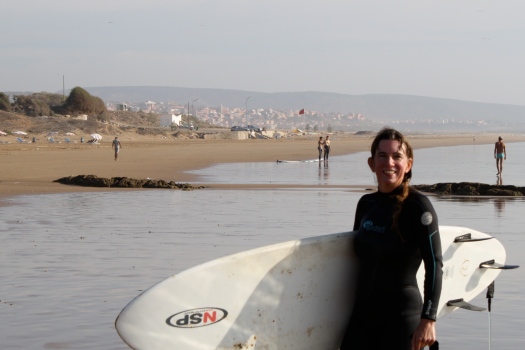Maldives: Bleaching devastates vulnerable inner, sheltered reefs, whilst the more resilient outer reefs with stronger currents, bounce back
Two Biosphere Expeditions Reef Check survey teams have been laying underwater transects over a two-week period from 15 – 28 July 2017 in order to get a clearer idea of the impact of the April/May 2016 bleaching event. Biosphere Expeditions has been collecting these types of data from Ari atoll since 2011, visiting the same sites repeatedly in order to create a reliable dataset.
It was soon apparent that many inner reef sites had not recovered from the bleaching and that hard coral had reduced dramatically to an average of only 8% . Over time, many of these corals will be broken down into rubble, so it is essential that grazers – parrotfish and surgeonfish continue to do the job of cleaning the dead coral of algae, in order to allow new coral ‘recruits’ to settle on the old dead coral.
However, fish stocks are depleted too. Important fish, such as parrotfish (for grazing the reef of algae that colonise corals after death) and grouper (an important food fish), were recorded, but not in any great numbers, which is another cause for concern. Grouper numbers, for example, were woefully low, with densities averaging only about 1 individual per 100 sqm of reef. Parrotfish, on the other hand, were abundant, sometimes reaching densities of 14 individuals per 100 sqm – densities at which the fish should be able to graze away the emerging algae.
Hope for inner reef remains in some isolated spots, such as Holiday thilla, to the south of Ari atoll, where many coral recruits were recorded. Overall, though, the picture was one of coral death, destruction and decline.
The picture was more encouraging for outer reefs that are more heavily dominated by Porites colonies. Here, much of the reef appeared to have totally recovered from the heating in 2016, with hard coral cover at an average of 38%.
The second half of the expedition visited sites further afield in Vaavu Atoll, attempting to glean information from historic survey sites first surveyed in the late 1990s.
Here too there was a mix of good and largely bad news, with healthy sites generally located in more exposed and southerly locations on atolls.
The expedition was joined by Maldivians and an international team of fee-paying citizen scientists. Maldivians ranged from members of the new NGO Reef Check Maldives , created as a result of Biosphere Expeditions’ placement and capacity-building programme for local people, to consultant marine ecologists, government staff, and Maldivians working for the tourist industry.
We are encouraged by the keen participation of our Maldivian colleagues and look forward to seeing go Reef Check Maldives from strength to strength. Because this is what is needed in the absence of any sensible government strategy that balances economic development against protecting the reef foundation on which the country itself, as well as its economy, identity and culture is built on: Civil society stepping up where the government is failing its people to protect the nation’s reefs and with it the nation’s wellbeing.
The expedition is kindly supported by the Marine Conservation Society and The Rufford Foundation.
A selection of pictures from the expedition is below.


























